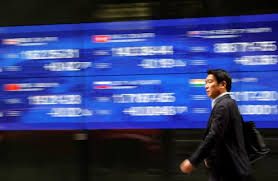Asian Stocks Surge As Rate Cut Expectations Rises
On July 16, most Asian stock markets remained buoyed by gains on Wall Street and expectations of a September rate cut by the Federal Reserve.

On Tuesday, July 16, despite weakness in the Chinese market due to economic sluggishness and political resistance in the United States, most Asian stock markets rose, driven by Wall Street's gains and expectations of a rate cut in September.
Regional markets responded positively to Wall Street's strong close, boosted by dovish comments from Federal Reserve Chairman Jerome Powell, indicating increased central bank confidence in inflation easing.
Additionally, speculation surrounding the Donald Trump administration buoyed markets, with optimism that this could lead to a more relaxed regulatory environment.
During Asian trading, US stock index futures rose. Concerns over Trump and weak economic growth weighed on the Chinese market. The China SSE 300 Index and Shanghai Composite Index remained flat or declined, while Hong Kong's Hang Seng Index fell by 1.5%.
Speculation surrounding former US President Trump's re-election prospects dampened the Chinese market due to his outspoken remarks on China during his presidency, including severe tariff measures that prolonged the trade war between Washington and Beijing in the late 2010s.
Trump gained traction in the 2024 presidential race against President Joe Biden, particularly following an attempted assassination, which seemed to boost the former president's popularity. On Monday, Trump officially secured the Republican presidential nomination and selected Ohio Senator J.D. Vance as his running mate.
The Chinese market has been troubled by concerns over a new round of trade tensions with the West, following heavy tariffs imposed by the EU and the US on key industries.
Disappointing second-quarter GDP data released on Monday further dampened sentiment towards China. Attention is now focused on the third plenary session of the Communist Party of China, where Beijing faces pressure to unleash additional stimulus.
On Tuesday, other Asian markets generally rose, with South Korea's KOSPI Index up by 0.1%.
Japan's Nikkei 225 Index and TOPIX Index showed the strongest performance, rising by 0.5% and 0.8%, respectively.
Indian Nifty 50 Index futures hinted at a strong start, with both the Nifty 50 Index and BSE Sensex 30 Index hitting new highs amid sustained confidence in the Indian economy.
Australia's stock market saw slight stagnation, weighed down by Rio Tinto, as the ASX 200 Index fell by 0.2% from its historical high. This was primarily due to losses from heavyweight miner Rio Tinto Ltd (ASX:RIO), which faced difficulties in the second quarter due to a train accident impacting iron ore shipments, despite export growth amid weak Chinese demand and uncertainty over economic growth.
Other major Australian commodity stocks were negatively affected as China remains the country's largest export market.
Similarly, BHP Group Limited (ASX:BHP), a competitor to Rio Tinto, fell by 1.7%. BHP plans to announce its quarterly production data later this week.
Disclaimer: The views in this article are from the original Creator and do not represent the views or position of Hawk Insight. The content of the article is for reference, communication and learning only, and does not constitute investment advice. If it involves copyright issues, please contact us for deletion.